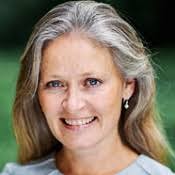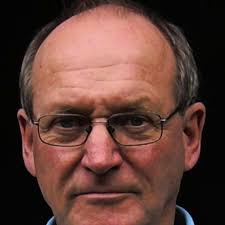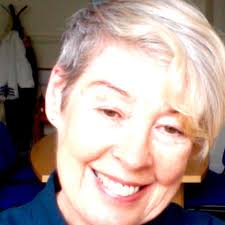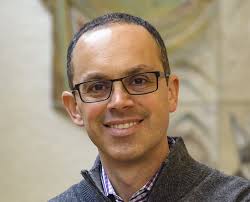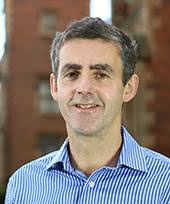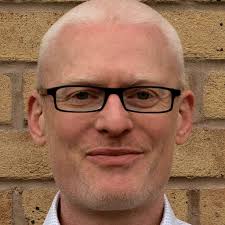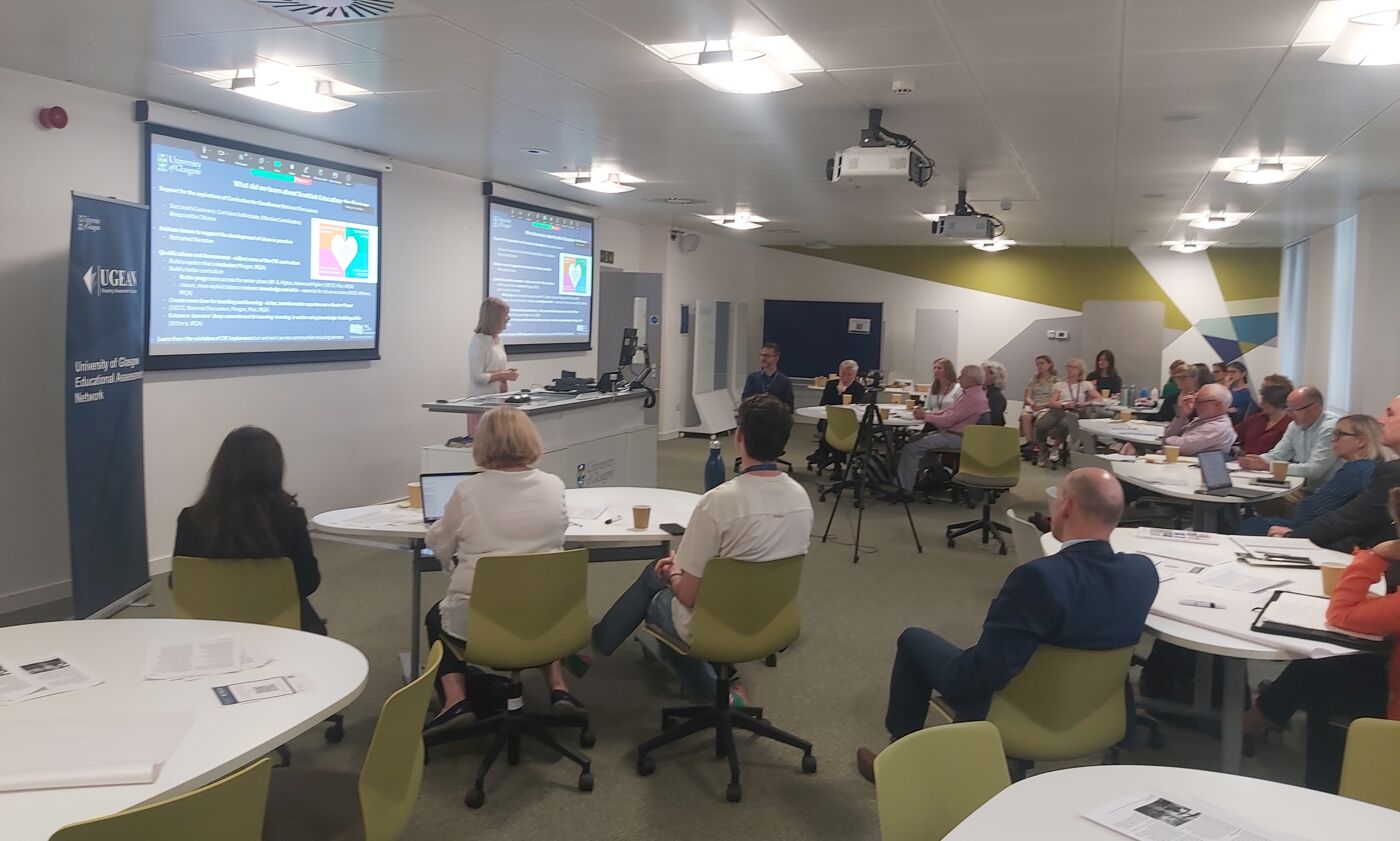
Seminars & Discussions
Over the years, UGEAN has hosted seminars and discussions around key ideas in educational assessment, teaching and learning, curriculum, professional learning, policy and educational change. Our seminars and discussions offer insights, ideas and perspectives from research, policy and practice and provide space to explore some of the challenges and possibilities of assessment and education.
Speakers in our current seminar series offer ideas, insights and reflections from their own work as these relates to the two strategic themes of the network:
- Reuniting learning, teaching and assessment
- Rethinking qualifications, learning and achievement
Current Seminar Series
11 June 2025: Camau i'r Dyfodol and the changing nature of curriculum making (Part 1): Learning and reflections from policy and research perspectives.
A webinar presented by Yvonne Roberts-Ablett and Sonny Singh.
Camau i'r Dyfodol (Steps to the Future) is a three-year collaborative research project between the University of Wales Trinity Saint David and the University of Glasgow, working in partnership with Welsh Government. The project aims to support education professionals in Wales to advance practical understandings of progression in learning and coherence within the context of the new Curriculum for Wales (CfW). Using co-construction as its core methodology, the project brings together researchers, policymakers, and practitioners to develop shared understandings of learning progression. The project's significance lies in its contribution to shifting traditional linear understandings of progression towards a more holistic approach that aligns with CfW's vision. Through collaborative efforts between education professionals across the system, the project develops resources and practical guidance to support practitioners in understanding progression and curriculum coherence. This work is particularly crucial as Wales transitions its education system from an accountability-dominated model to one that is professionally led, emphasising sustainable curriculum reform. This is the first of two seminars exploring the work of the Camau i'r Dyfodol project. The second seminar will be advertised in due course and brings in perspectives from practice.
Dr Sonny Singh
Sonny Singh, senior academic at University of Wales Trinity St David holds extensive experience spanning government policy development, higher education, and secondary school leadership. His interests include curriculum, pedagogy, educational policy, and practical educational leadership, demonstrated through his work as a secondary school senior leader and his contributions to national curriculum frameworks. Sonny's unique background also includes Theoretical Physics and mathematics as well as experience in financial analysis, bringing this to his educational approach.
Mrs Yvonne Roberts-Ablett
Yvonne Roberts-Ablett is Head of Curriculum Strategy at the Welsh Government. As a previous teacher and senior leader working across England and Wales, she is now working on curriculum and assessment policy design, having been part of the co-construction process to create the Curriculum for Wales. As an EdD student with University of Wales, Trinity St David, her research explores secondary school practitioner understanding of curriculum design within the context of Curriculum for Wales.
Links assocated with this seminar
Camau i'r Dyfodol Project Research Reports:
- Phase 1 - Curriculum for Wales: evolving understandings of progression in learning (English / Welsh)
- Phase 2 - Building practical understandings of Curriculum for Wales (English / Welsh)
- Phase 3 - Working with a process approach to Curriculum for Wales: ‘I can now be the teacher I always wanted to be.’ (English / Welsh)
19 September 2024: The morality of assessment: time for a rethink?
A webinar presented by Isabel Nisbet and Stuart Shaw
https://www.youtube.com/watch?v=XJs4P1BdsM0
In many countries assumptions are being questioned about the purpose and value of education, of schooling and of universities. These questions underpin the first strategic theme of UGEAN (reuniting learning, teaching and assessment) and have implications for the second (about qualifications). Yet they have been neglected in recent educational writing. The presentation will argue that it is high time for a moral rethink. It will focus on three questions: What is the moral justification for educational assessment? What moral challenges are made to educational assessment and are they persuasive? What moral principles should govern assessment practice? The authors will argue for a moral base for educational assessment and suggest principles which should govern assessment in practice, although more work needs to be done on these. They conclude that the fundamental moral questions about educational assessment in the mid-21st century include: “What evidence (from the ever-increasing mass available) is it right to use to make judgements that matter about learners?”; and “What processes are morally justified to obtain that evidence, make the judgements and communicate the outcomes?”
About the speakers:
Isabel Nisbet’s academic training was in philosophy, with her tutors including R.S. Downie in Glasgow and R.M. Hare in Oxford. Her professional career has been in government and regulation in the UK, including posts in government departments in Scotland and England and senior roles in the regulation of medicine and postgraduate medical education. These led to a Director role in the Qualifications and Curriculum Authority in England. Isabel was the founding CEO of Ofqual, the statutory regulator of qualifications and assessments in England. From 2011 to 2014, she worked for Cambridge Assessment in South East Asia, based in Singapore. Isabel has served on the Board of Qualifications Wales and has been a governor of four universities in England. She is currently Vice-Chair of the Board of Governors of the University of Bedfordshire. In 2021, Isabel was appointed to a panel carrying out an Independent Review of Education in Northern Ireland, and their report was published in December 2023. She is a member of the National Statistician’s Data Ethics Group, and she contributes regularly to national and international conferences and seminars.
Stuart Shaw is Honorary Professor of University College London in the Institute of Education - Curriculum, Pedagogy & Assessment. He has worked for international awarding organisations for over 20 years and is particularly interested in demonstrating how educational, psychological, and vocational tests seek to meet the demands of validity, reliability, and fairness. Recent books include: Validity in Educational and Psychological Assessment (Newton & Shaw, 2014); Is Assessment Fair? (Isabel Nisbet & Stuart Shaw, 2020). Stuart is the Chair of the Board of Trustees of the Chartered Institute of Educational Assessors (CIEA) as well as being a fellow of the CIEA. He is a Fellow of the Association for Educational Assessment in Europe (AEA-Europe). Stuart is an elected member of the Council of AEA-Europe and is Chair of its Scientific Programme Committee. He is also an elected member of the Board of Trustees of the International Association for Educational Assessment (IAEA) and Chair of its Communications Committee. He has recently become Chair of the ‘Research’ Awards Panel for the e-Assessment International Conference & Awards.
22 May 2024: It’s Our Future - Independent Review of Qualifications and Assessment- looking forward, collectively, in Scotland
‘It’s Our Future’ was the report submitted to the Cabinet Secretary for Education and Skills in June 2023. The report was developed collaboratively with stakeholders from across Scotland, learners and parents/carers; teachers and lecturers, schools and college leaders, local and national policy makers and politicians; universities and colleges; employers. It was also informed by national and international researchers and policy makers in five key areas: assessment and qualifications, curriculum, equity, change processes and policy coherence and by case studies of approaches to qualifications in several countries with aspirations similar to Scotland. It’s Our Future presents a vision for the future of qualifications and assessment in Scotland and proposes a Scottish Diploma of Achievement as one way to address current issues in Scotland and translate the vision into practice.
This seminar focuses on one community central to the work of the review- the Profession: teachers and lecturers, school and college leaders and local government. It looks beyond the Review which led to the report ‘It’s Our Future’ to reflect on opportunities and challenges if there is to be a better future for qualifications and assessment in Scotland.
As part of the seminar there will be opportunities for the audience to discuss issues arising and to share examples where schools, LAs and colleges are already working in innovative ways to recognise more of what pupils are achieving.
This seminar contributes to the UGEAN strategic theme of: ‘Rethinking qualifications, learning and achievement.’
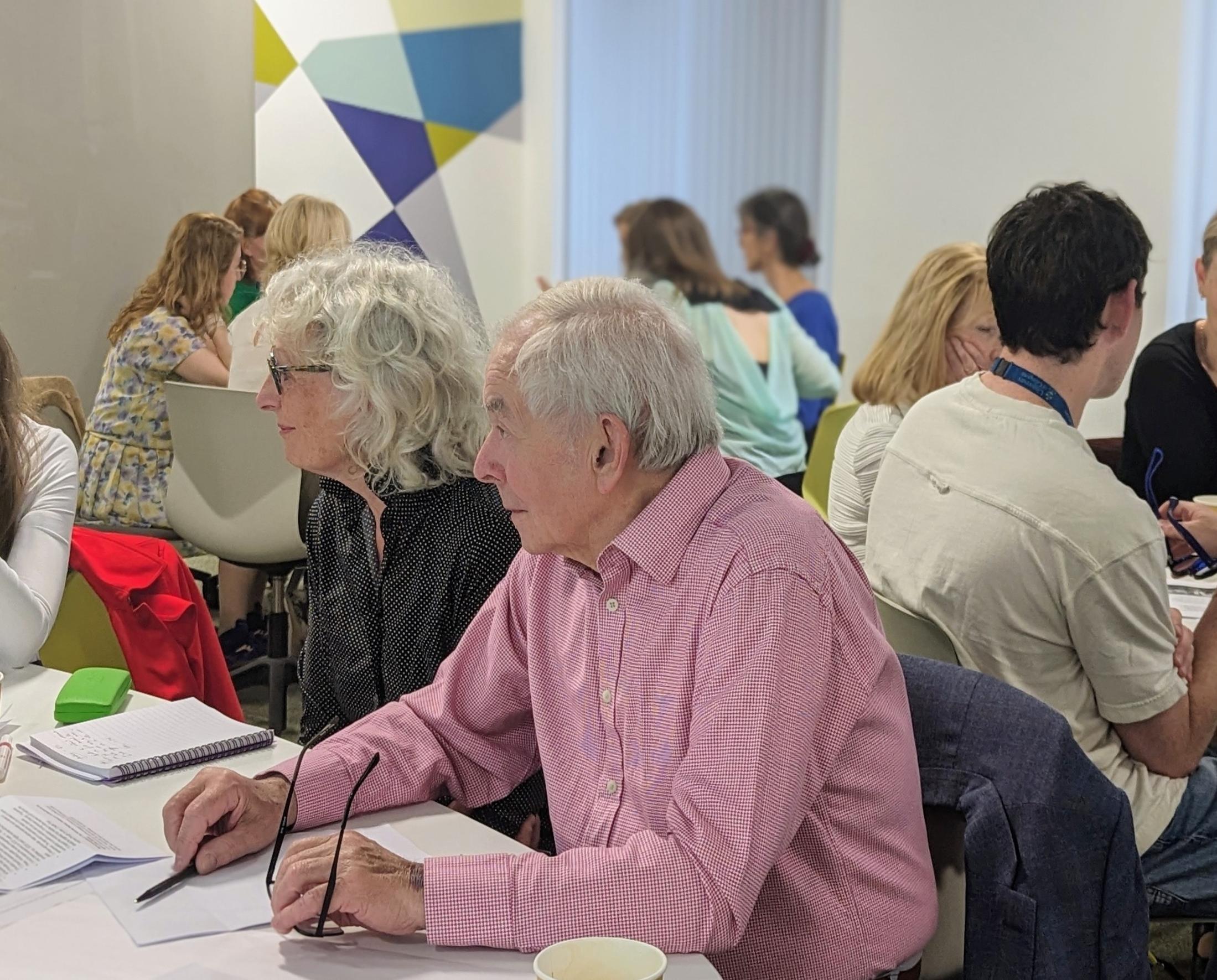
The Panel
Andrea Bradley, EIS General Secretary. Community Collaborative Group Leader: Teachers and Lecturers.
Peter Bain, Executive Headteacher, Oban High School, Tiree High School and Tiree Primary School and President of School Leaders Scotland (SLS). Community Collaborative Group Leader: School Leaders.
Louise Hayward, Professor Emerita Educational Assessment and Innovation, UGEAN, University of Glasgow. Convenor of the Independent Review of Qualifications and Assessment.
Douglas Hutchison, Executive Director of Education, Glasgow City Council. Community Collaborative Group Leader Local Government.
Ken Thomson, Until recently, Principal Forth Valley College. Community Collaborative Group Leader Further Education Colleges.
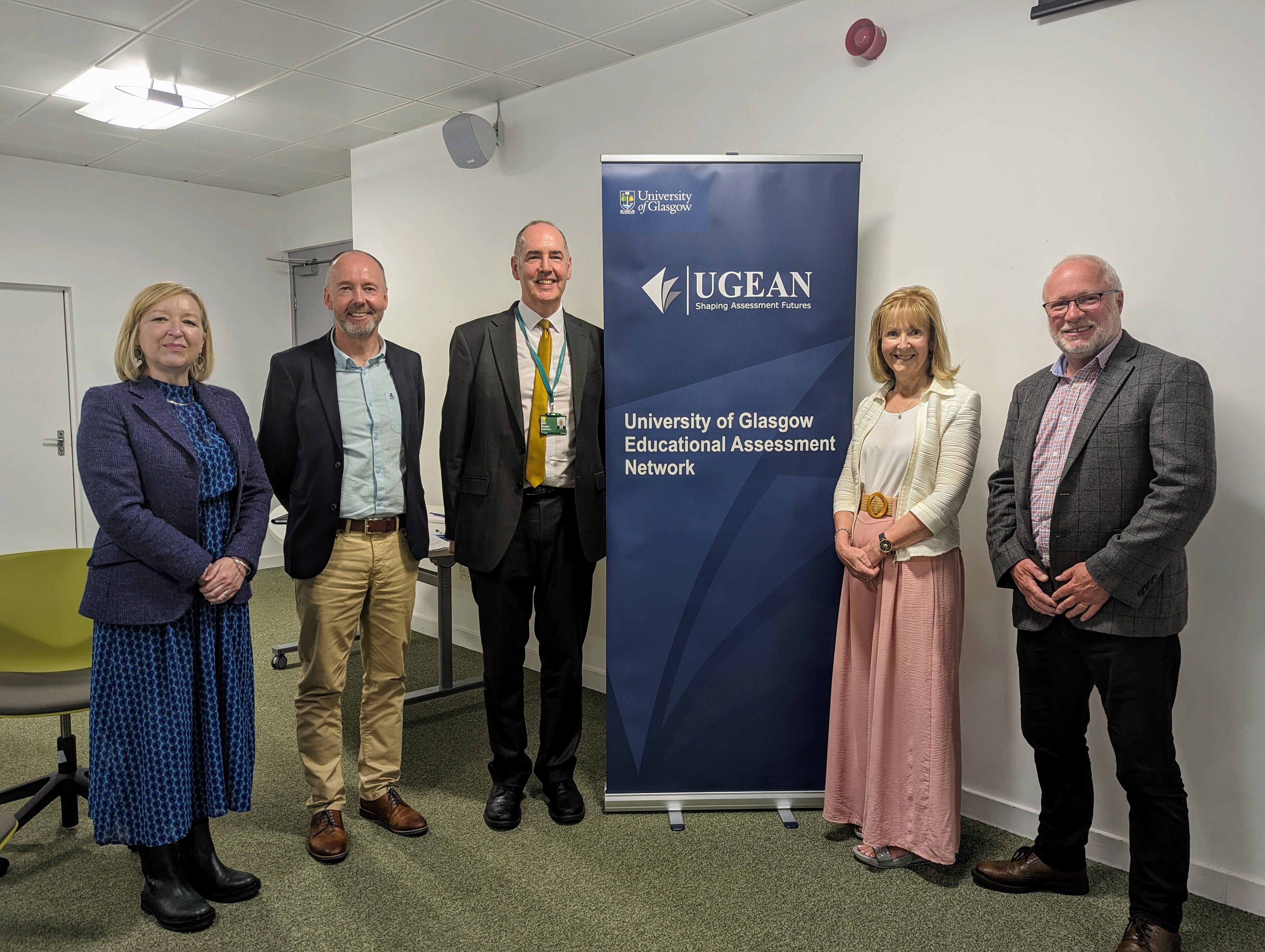
Previous Seminars & Discussions
31 March 2021: Webinar Three - Assessment for Learning Internationally - Facing the Challenge
At its heart, Assessment for Learning (AfL) is focused on progression in learning, empowering learners to become confident, competent, reflective learners. It is an internationally recognised phenomenon. However, different cultures and policy contexts influence the ways in which AfL is developed and enacted in individual countries. Assessment practices are always locally contextualised. These differences provide us with rich opportunities to learn with other countries about how assessment is being used to support learners as well as reflect on, and challenge, aspects of our own thinking and practice.
The third webinar in the series looked at how Assessment for Learning is being developed internationally by exploring insights from Canada, Norway, Slovenia and Singapore.
Panel: Chris DeLuca (Canada), Siv Gamlam and Kari Smith (Norway), Ada Holcar Brauner and Saša Kregar (Slovenia) and Kelvin Tan (Singapore). Louise Hayward and David Morrison-Love chaired the event.
Canada Chris DeLuca is Associate Professor of Educational Assessment at Queen’s University, Kingston, Ontario.
Norway Siv Gamlam is Professor in the Institute of Pedagogy at Volda University College, and Kari Smith is Professor in the Department of Teacher Education in the Norwegian University of Science and Technology.
Slovenia Ada Holcar Brauner and Saša Kregar are Senior Consultants at the National Education Institute in Slovenia.
Singapore Kelvin Tan is Associate Professor at the National Institute of Education in Nanyang Technological University.
Louise Hayward is Professor of Educational Assessment and Innovation at the University of Glasgow. David Morrison-Love is a member of the University of Glasgow Educational Assessment Network.
All are members of the International Educational Assessment Network (IEAN)
10 March 2021: Webinar Two - Question Time

This second webinar was a follow up to Webinar One during which participants had been invited to identify and submit questions. Those questions were clustered into themes which were explored in Webinar Two, in a ‘Question Time’ style format, by an expert panel.
The session was chaired by Louise Hayward, Professor of Educational Assessment and Innovation at the University of Glasgow, and the panellists were Carolyn Hutchinson, Ernest Spencer and Fran Valdera-Gil. Carolyn Hutchinson is Honorary Senior Research Fellow and previously led Assessment is for Learning (AifL) in Scottish Government; Ernest Spencer is Honorary Senior Research Fellow who previously was National Specialist in Assessment within HMIE; Fran Valdera-Gil is an assessment expert in Modern Languages and is Chief Examiner for Spanish in SQA. All are members of the University of Glasgow Educational Assessment Network.
A recording of Webinar Two can be accessed here.
25 February 2021: Webinar One - Assessment for Learning in Scotland - a long and winding road
A research review by Paul Black & Dylan Wiliam in 1998 began an international trend to promote assessment as a means of improving learning. Scotland was a leader in taking forward Assessment for Learning (AifL) research and policy and from 2002 pioneered innovative ways of engaging teachers and others in translating policy into practice. The then Minister for Education described Scotland’s Assessment is for Learning Programme as ‘a quiet revolution in Scottish Education’.
This first seminar considered what the AifL programme in Scotland set out to do, what it achieved, what challenges it faced and what AifL looks like in schools and classrooms in 2021. The seminar described the evolution of AifL in Scotland, enhanced by the personal accounts of practicing teachers. It included consideration of how AifL impacts on learning in our classrooms and schools today and began to explore how AifL might change to meet the challenges of the mid-21st century, an exploration that would continue in subsequent sessions.
Introduced by Professor Bob Davis, Director of the Robert Owen Centre, and Chaired by UGEAN member Dr Kara Makara, the seminar was presented by UGEAN members Professor Louise Hayward and Dr Carolyn Hutchinson along with Martine Leitch, Headteacher at Croftfoot Primary School, and Rachel Scott, Principal Teacher of Science at Arbroath High School. Louise Hayward is University of Glasgow Professor of Educational Assessment and Innovation, and Carolyn Hutchinson is an Honorary Senior Research Fellow at the University of Glasgow who previously led the Assessment is for Learning initiative for the Scottish Government.
A recording of Webinar One can be accessed here.
October 2019: Challenges in Developing the EEF Toolkit to Support the use of Research Evidence in Practice
Professor Steve Higgins

Professor Steve Higgins joined the School of Education at Durham University in September 2006. Before working in higher education he taught in primary schools in the North East where his interest in children’s thinking and learning developed. His research interests include the use of evidence from research to support policy and practice decisions in education, the effective use of digital technologies for learning in schools, understanding how children's thinking and reasoning develops, and how teachers can be supported in developing the quality of teaching and learning in their classrooms. He has a particular interest in the educational philosophy of Pragmatism and the implications for teaching and learning, particularly relating to the use of research evidence to develop practice in schools.
Seminar outline
This seminar explored the development of the Education Endowment Foundation’s Teaching and Learning Toolkit as a resource to support the use of research evidence in practice: (https://educationendowmentfoundation.org.uk/evidence-summaries/teaching-learning-toolkit). This has been developed through a partnership between the EEF and a research team at Durham University. A version has also been adopted and adapted by Learning and Teaching Scotland: (https://education.gov.scot/improvement/eefsearch). A number of tensions was presented, particularly in terms of the researcher’s responsibilities to balance the tensions between the accuracy and the accessibility of the information, as well as the academic pressures to demonstrate impact from research. Aspects of the role of the practitioner was outlined in a model of research application. Plans to develop the resource was also presented.
June 2019: Peer Assessment: Snake-oil Remedy or Miracle Cure?
Emeritus Professor Keith Topping

Keith Topping is Emeritus Professor of Educational and Social Research in the University of Dundee where, as director of the Centre for Peer Learning, he directed a wide range of projects investigating cooperative and peer assisted learning in schools and universities, within Scotland, the UK and internationally. His most recent publications include Learning by Peer Assessment: Appraising, reflecting, discussing.
Seminar slides - Keith Topping Presentation slides 20 June 19


May 2019: Can Teachers be Active Curriculum Makers? Exploring Ecological Understandings of Teacher Agency
Professor Mark Priestley

Mark Priestley is Professor of Education in the University of Stirling and Director of the Stirling Network for Curriculum Studies. He is currently Lead Editor of The Curriculum Journal. His publications include Teacher Agency: An Ecological Approach (with Gert Biesta and Sarah Robinson).
Seminar outline and recording - https://echo360.org.uk/section/af3f9e38-5fda-4e50-99ba-1e410d26412c/public
Modern curricula, such as Curriculum for Excellence, require teachers to be active curriculum makers. This requirement is premised, implicitly at least, on assumptions that teachers are able to be agentic in their professional work; the term ‘teacher agency’ has become commonplace. Nevertheless, teacher agency is often poorly understood and weakly conceptualised. Its use begs various questions, not least ‘What is teacher agency?’ and ‘How can it be achieved?’ Mark gave an overview of an ecological understanding of teacher agency as something that is achieved, rather than something innate to individuals, focusing on three dimensions: 1] individual, including conceptual development about the curriculum; 2] cultural, for example, collective beliefs about the role of schools; and 3] structural, for instance, relational resources afforded by networks in schools.
February 2019: Learning without Limits
Professor Dame Alison Peacock

Dame Alison Peacock is Chief Executive, Chartered College of Teaching. Prior to joining the Chartered College, Dame Alison was Executive Headteacher of The Wroxham School in Hertfordshire; her career had spanned primary, secondary and advisory roles. Dame Alison is the author of Assessment for Learning without Limits.
Seminar outline
In her seminar, Dame Alison drew upon her experience as a teacher and headteacher throughout a career dedicated to reducing deterministic notions of so-called ‘ability’, and illustrated her talk with video clips and accounts of practice. She also drew links between her research and her current role, as she sets about establishing a new professional body ‘by teachers, for teachers’, the Chartered College of Teaching.
April 2018: A new approach to standards, evidence and beginning teacher performance assessment
A new approach to standards, evidence and beginning teacher performance assessment: vesting accountability in the profession and putting learning at the centre
Professor Clare Wyatt-Smith, Australian Catholic University
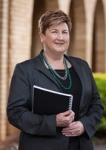
June 2017: Raising the quality of early years provision through professional learning
Professor Sue Rogers, UCL Institute of Education, London
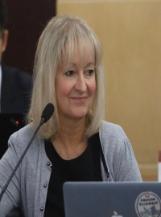
Professor Sue Rogers is Professor in Early Years Education and Pro Director Academic Development at the UCL Institute of Education, London. She has published widely in the field of early years pedagogy and curriculum, particularly in relation to children's play. She is working on a new book which considers how the early years profession can become 'evidence informed' and make greater use of research in practice.
Seminar outline
The expansion of early years provision and focus on raising quality and closing the disadvantage gap has brought with it some significant challenges for the early years sector, particularly with regard to the skills and qualifications of the early years workforce. Reporting on a recent systematic review of international evidence on the most effective types of professional learning in early years education the seminar will ask: What kinds of professional learning approaches are most effective for improving educational outcomes for young children? How and in what ways does professional learning impact on classroom practices that support children’s learning in the early years?
April 2017: Reconsidering young people as social and political agents in educational assessment reform: Students’ voices in national assessment reform
Professor Jannette Elwood, Queen’s University, Belfast
![]()
Seminar outline
Assessment systems are a major driver of educational change and as such are continually modified more often for political than educational gain. The consequences of these modifications to national and international educational assessments show them to be more complex socio-political phenomena than neutral, technical evaluations of students learning. Assessment is thus shaped and transformed by social and political agents interacting at the local, national and international level. Such a position requires us to rethink who are the social and political agents interacting and mediating assessment policy and practice. I will present on going work that looks at students as political and social agents in assessment change. Research has shown students not only as policy actors in assessment reform but also ‘the acted upon’ – that students are shaping educational assessment policy within their own contexts but are also being shaped by it through assessment opportunities made available to them and ultimately the outcomes they receive. My presentation will take as its focus the issue of young people’s participation in national assessment reform as well as their views and perspectives on high-stakes examinations systems about which they are rarely consulted. Established and emerging data sets will be drawn on that have considered (and are considering) these issues with young people from different jurisdictions. The presentation will highlight how young people feel positioned within assessment regimes and how considering their perspectives on these matters can improve our knowledge of fundamental assessment practices and provide us with a fuller understanding of those elements that will promote high quality, fair assessment.
March 2017: Lessons Learned from large-scale implementations of Assessment for Learning
Therese N. Hopfenbeck, Associate Professor, Director of the Oxford University Centre for Educational Assessment, University of Oxford
Before coming to OUCEA, Therese held a post-doctoral position at the Oslo University’s research group for Measurement and Evaluation of Student Achievement at the Unit for Quantitative Analysis of Education.
Originally a secondary school teacher with many years’ experience in the classroom, Therese has also worked as school district supervisor and as a consultant for the Norwegian Directorate for Education and Training regarding the development and evaluation of national exams.
Seminar outline
Assessment for learning (AfL) has been recognised as the cornerstone of effective teaching since Black and Wiliam's 1998 publications ‘Assessment and classroom learning’ and ‘Inside the Black Box: Raising standards through classroom assessment’. Yet large-scale implementation of AfL has proven to be complex and elusive, requiring the integration of both cultural and structural change in order to take root. Based on the work I have been doing in Norway and England the past years, as well as a research project I am currently leading, Assessment for Learning in Africa, I will discuss how we might better support the large-scale implementation of AfL within a variety of local and national contexts.
November 2016: Re-imagining support for all students – why new approaches are needed
Professor Lani Florian, University of Edinburgh
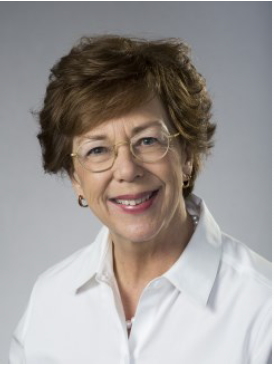
Professor Lani Florian is Bell Chair of Education at the University of Edinburgh and Fellow of the Academy of Social Sciences (FAcSS). Her influential research on inclusive education has led to invitations from around the world to speak, conduct workshops and provide technical assistance on inclusive education projects in many countries and to international agencies including UNICEF, UNESCO, OECD, Open Society Foundations, and the Council of Europe.
Lani is a member of the American, British and European Educational Research Associations. She serves on the board of five academic journals and is series editor of Inclusive Learning and Educational Equity a forthcoming series of books to be published by Springer. She is editor of the Sage Handbook of Special Education, now in its second edition, and co-author of Achievement and Inclusion in Schools.
Seminar outline
Article 24 of the UN Convention on the Rights of Persons with Disabilities (UNCRPD) has affirmed the rights-based nature of inclusive education by specifying that ‘persons with disabilities receive the support required, within the general education system, to facilitate their effective education’ (UN, 2006, Article 24 §1). While the availability of specialized support is seen as an important aspect of an inclusive education, there are questions about how this support can be provided without perpetuating the problems of exclusion that are created when some students are identified as having difficulties in learning. This lecture identifies some key problems with traditional approaches to additional support and argues that a shift in thinking about how support is provided can open up new possibilities for practice that avoids the marginalisation that can occur when some students are treated differently to others. Some examples of how this shift in thinking can change practice are provided.
April 2016: Three BIG ideas... to improve assessment
Professor Richard Kimbell, Goldsmiths University of London
Richard Kimbell founded the Technology Education Research Unit (TERU) at Goldsmiths University of London in 1990. Research sponsors include research councils (eg ESRC, NSF [USA], NESTA); industry (eg LEGO, BP); government departments (eg DfES, DfID); and professional/charitable organisations (eg Engineering Council, RSA). Kimbell has published widely in the field including four single-authored books, several books in which he edited contributions, and he has prepared reports for the Congress of the United States, UNESCO and NATO. He was a Distinguished Scholar at the University of British Columbia - Vancouver, and Visiting Professor at the University of Stockholm - Sweden.
Seminar outline
The assessment of performance is one of those fields in which technical national requirements (for reliability and standards) meet local cultural practices (of pedagogy and individuality). And the meeting is frequently uncomfortable and unsatisfactory. In this paper I will outline an approach to assessment that reconciles local cultural practices with national requirements. It is based on three big ideas that originated in research projects, have been proven in practice, are established in the research literature, but are not currently adopted into practice either at the classroom level or within examining organizations.
March 2016: What is ‘making a difference’ in teachers’ professional learning and how can we build on it?
Professor Vivienne Baumfield, University of Exeter
Vivienne Baumfield is a Professor of Professional Learning in the Graduate School of Education at the University of Exeter and co-leader of the Centre for Research in Professional Learning. Prior to this Vivienne was a Professor in the School of Education at the University of Glasgow. She is interested in the interaction of research, policy and practice when university-based researchers work with practitioners in the creation and translation of knowledge across contexts. This interest is linked to the wider issue of understanding the relationship between theory and practice in professional learning and is grounded in a perspective derived from pragmatism. Her teaching and research examines international perspectives on the professional development of teachers and the impact of school-university partnerships as communities of pedagogical inquiry. Professor Baumfield’s research is widely published and has been shared in numerous national and international keynote addresses.
Seminar outline
Numerous reviews and reviews of research indicate broad agreement on the necessary elements for the professional development of teachers; it is assembling what we know into a coherent approach that remains a challenge. The current situation is reminiscent of the comedian Eric Morecambe’s defence of his performance on the piano to Andre Previn, ‘I am playing all the right notes but not necessarily in the right order’. I will argue in this seminar that school-university partnerships provide a viable means of integrating what we know about the promotion of teachers’ professional development. School-university partnerships when constituted as communities of inquiry can sustain the mutually fortifying tension between theory and practice recognised by Dewey as the key to professional learning. Three important characteristics of such school-university partnerships will be examined:
- Making matters of fact matters of concern
- Developing tools for inquiry
- The role of teacher educators as ‘pracademics’
The principles on which school-university partnerships are based are not new and the difficulty of securing their place in mainstream educational thinking should not be underestimated. Inquiry can be uncomfortable. It requires the acknowledgement of uncertainty and a tolerance of ambiguity at odds with the current culture of performativity in schools and universities. Re-positioning teachers as pivotal in the creation and translation of pedagogical knowledge also privileges sources of evidence that challenge existing hierarchies. Previous attempts to work ‘from the inside out’ to achieve a radical transformation of professional learning have been hampered by three factors:
- a lack of clarity resulting in terms travelling better than the concepts or processes they represent
- the confusion of advocacy with reality
- ‘academic amnesia’ so that previous efforts in providing a rationale for professional learning are forgotten.
If we are to realise Dewey’s ambition to develop ‘pedagogy as theory’ we will need to address these challenges and subject what we think has worked to rigorous scrutiny so that a warrant for further experiments in practice can be achieved.
January 2016: International achievement testing, global education governance, and large-scale reform
Louis Volante, Professor of Education, Brock University, Canada
Louis Volante is Professor of Education at Brock University in Hamilton, Ontario, Canada. In 2016, he will be a Visiting Professor at UNU-MERIT (United Nations University – Maastricht Economic and Social Research Institute on Innovation and Technology) / Maastricht Graduate School of Governance, in the Netherlands. His research is focused on the global governance of education, international achievement studies, migrant integration and student achievement, education policy analysis, and education reform and innovation. Professor Volante’s publications have been widely referenced by scholars in more than 30 countries, and every continent. His research has been supported by external funding agencies such as the Social Sciences and Humanities Research Council of Canada (SSHRC). Professor Volante is a former recipient of the R.W.B. Jackson Publication Award, which is awarded annually by the Canadian Educational Researchers’ Association, for the best English language journal article. Louis completed his PhD within the Department of Theory and Policy Studies in Education at the University of Toronto.
Seminar outline
This seminar discusses the intersection of international achievement testing and educational governance across a range of western nations: Germany, England, Scotland, Republic of Ireland, Sweden, the Netherlands, United States, Canada, and New Zealand. The speaker discusses the genesis and evolution of international testing (i.e., PISA, TIMSS, PIRLS) across the globe. Particular attention is given to the “actions and reactions” that have stemmed from the relative performance of students on international benchmark tests within national education systems. The seminar also examines how policy decisions have been made within unique political, economic, cultural, and educational contexts.
May 2015: Creativity and the Curriculum
Professor Dominic Wyse, Institute of Education (IOE), University of London
Dominic Wyse is Professor of Early Childhood and Primary Education at the Institute of Education (IOE), University of London. The main focus of his research is curriculum and pedagogy. Key areas of work are the teaching of English, language, literacy, and creativity. Dominic has led or been participant in more than 20 funded research projects. Dominic is author of more than 40 research articles and chapters, and 20 books. These include major international research volumes on the teaching of English, language and literacy for which he is the lead editor, and bestselling books for teachers and educators that are now in their third edition. His book, Creating the Curriculum, was the first to compare the national curriculum in the four nations of the UK. Dominic has been an editor and is on the editorial board of internationally recognised research journals. He is currently editor of the Curriculum Journal, one of the journals of the British Educational Research Association. He has been consulted by major international companies in relation to the development of packages and approaches that support learning in schools. In addition to work in these areas Dominic has extensive experience in music including a position as the first Director of Music-Making at Churchill College Cambridge where he was also a Fellow.
March 2015: From Policy to Practice by Making Change Happen
Graham Norris HMI, Education Scotland Assistant Director
Presently Assistant Director with Education Scotland, Graham has responsibility for leading improvements to the curriculum, learning, teaching and assessment. This involves developing and promoting innovative approaches to 'change leadership'. Graham has addressed international audiences as well as being a regular conference speaker closer to home. Previously as an Assistant Chief Inspector in HM Inspectorate of Education, Graham led the development of school inspection approaches that have been used since 2008 and he managed and quality assured the work of primary and secondary inspection teams. Graham has also had national responsibility for over 20 years in areas such as creativity, inclusion, music, and ICT across learning, and he has written many publications on topics including, for example, self-evaluation and approaches to change.
Seminar outline
Graham will explore how education policy connects in practice to approaches for making change happen, both locally and internationally. He will draw on experience of leading the development of change methodologies for education in Scotland, and on international research carried out by the OECD.
February 2015: Emerging Validity Issues in Assessment
Dr Paul Newton
The speaker, Dr Paul Newton, Research Chair at Ofqual, the Office of Qualifications and Examinations Regulation, England. Prior to joining Ofqual, Paul was Professor of Educational Assessment at the Institute of Education, University of London. His research focuses primarily upon issues related to the evaluation of large-scale educational assessment systems, and he is particularly interested in theories of validity for educational and psychological measurement, past and present. He has published on a range of assessment topics, including validity, comparability, assessment purposes, reliability, and the public understanding of measurement inaccuracy. Across his career he has served as a researcher for the Associated Examining Board, the National Foundation for Educational Research, the Qualifications and Curriculum Authority, and Cambridge Assessment. He is first author of the recent book Validity in Educational and Psychological Assessment (SAGE, 2014, with Stuart Shaw).
October 2014: Assessment: Are We Willing? Are we Ready? Looking for the Answer
Professor John Gardner
Professor John Gardner (PhD MSc PGCE BSc FBCS CITP CEng AcSS FCIEA) is Deputy Principal (Education and Students) at the University of Stirling. His main research and teaching interests include policy and practice in all sectors of education, particularly in relation to assessment and information technology.
He has over 120 academic publications and has authored or co-authored seven books, the most recent being: Assessment and Learning (2012, Sage), Developing Teacher Assessment (2010, McGraw-Hill/Open University) and The Classroom X-Factor (2011, Routledge). He has presented numerous international keynote addresses and been principal investigator for research projects exceeding £2.5million in total funding.
From 1994-2010, Professor Gardner was a member of the globally influential Assessment Reform Group (ARG) and is currently a visiting professor at the University of Oxford’s Centre for Educational Assessment. He is a fellow of the British Computer Society, a fellow of the Chartered Institute of Educational Assessors, and an Academician of the Academy of Social Sciences. He is currently a member of the steering committee of the ESRC’s Technology Enhanced Learning (TEL) programme and a member of the ESRC’s Peer Review College.
In 2011 Professor Gardner completed a two-year term of office as President of the British Educational Research Association. He was a member of the UK RAE Education panel (2004-08) and is a member of the current REF Panel 25 (Education).
Seminar outline
John Gardner will consider the complexity of assessment in education and the extent to which teachers and the wider society can be expected to assimilate it and offer a dependable school-based system. Unpicking the complexity reveals a wide variety of issues, which arguably have little prospect of adequate treatment in most initial teacher education and has at best patchy treatment in continuing professional development.
This seminar will consider assessment as a concept and process, and how assessment by teachers is reflected in social and research perspectives. These will include the rational and challenges of using assessment to support learning. The presentation will conclude with a look at ethical dimensions, which add a hugely important layer of complexity to any attempt at teacher or school-based assessment.
Are we willing to take on the complexity of these various aspects of assessment in education?
And if we are, are we ready to do it?
August 2014: Making connections within and across subject domains
Professor Wynne Harlen, OBE, PhD
Wynne Harlen, OBE, PhD, has been involved in teaching and research in science education, evaluation and student assessment throughout her long career, during which she has been Sidney Jones Professor of Scientific education at the University of Liverpool and Director of the Scottish Council for Research in Education. Among other roles, she was the first Chair of the OECD/PISA expert group for science (1998–2003) and led a Working Group of the Royal Society which produced the State of the Nation Report on Science and Mathematics Education 5-14 (2010). She was President of the UK Association for Science Education in 2009 and of BERA in 1993.
She now acts as a consultant to various UK and overseas school science and assessment projects. Her publications on science education and on assessment include 25 research reports, over 150 journal articles, contributions to 37 books and 28 books of which she is author or co-author.
Seminar outline
From the starting point of existing work on the identification of ‘Big Ideas’ of science education, the intention is to explore the value of similar developments within and across other subject domains, in the humanities as well as STEM subjects. Questions to be considered are: How big is big? How is progression to be identified and described? What pedagogy is required to build connections? How to assess big ideas?


